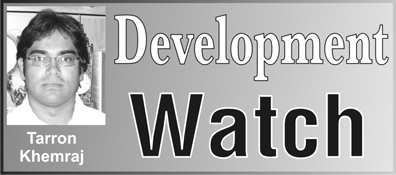Home ownership is the main pillar of the PPP’s development strategy. From the beginning it was pursued more for its political returns than economic merit. If economics, environmental values and human well-being were the main motivations we would have seen housing being integrated with a policy of domestic content requirement for building materials (to promote manufacturing and domestic linkages). We would have observed strict building standards to reduce the demand for energy by optimizing the Atlantic breeze as a cooling system. We would have seen green parks and play grounds for children instead of the ubiquitous rum shops.
A housing policy was always going to force the opposition to play off the back foot. For example, could it be financed better, particularly for the poor? How could home building be done in a manner better for the environment? Home ownership could also induce a change in people’s behaviour as Lee Kuan Yew understood when he implemented his policy of 100% home ownership. They had some interesting financing models over there in Singapore. If the opposition is not careful and does not promote a positive message of vision, those receiving house lots will not be motivated to vote against the government, in spite of the PPP being CARICOM’s most corrupt government. Indeed, the 2014 LAPOP poll suggests that twice as many Guyanese are bothered by crime compared with corruption.
The PPP is essentially trying to redefine the concept of development. It wants Guyanese to view home ownership as the only component of economic development. When the 2012 population census was finally released, two years late, only selected parts were given. They released data showing the

